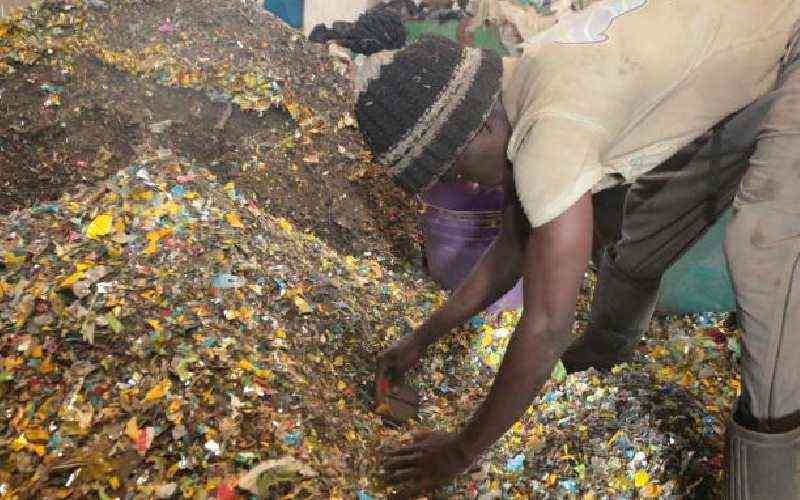×
The Standard e-Paper
Join Thousands Daily

Victor Ooko goes through a process called mixing where different plastic material and recycled waste are mixed to detect metals so that they can be removed from that waste. [Silas Otieno, Standard]
Inside the factory, a mild explosion occurs followed by a plume of smoke. A little sparking follows, and finally, out of the extruder machine's barrel, a man pulls out a plastic pole.